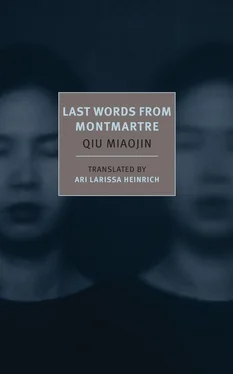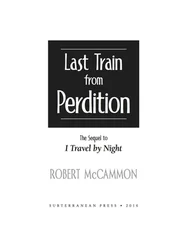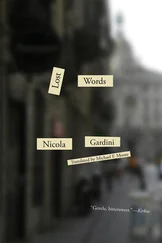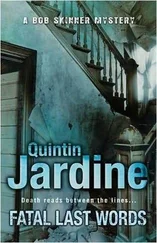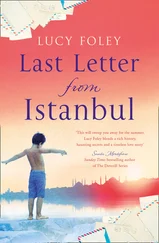( Being abandoned was more painful than death ….) You said this to me so simply.
Yong, before, I tried to see you as a fictionalized figure, and even in Tokyo you stopped trusting my memory and joked that all my memories of you were fictionalized. But would you be able to face them if they weren’t fiction? Could you accept my uninhibited desire for you? Could you bear to know what you’ve rejected? If I spoke the whole truth, would you face it instead of waiting quietly for death in a pit of grief?
My way of loving you is to allow myself to be defeated by you.
Obey you. Surrender my rights. Cherish you, cherish you, and cherish you again.
Do you see it? Are you willing to see it?
You’re the only one who inherently understands the complexities of who I am.
If I told you the truth, Yong, would I have to drown myself as Osamu Dazai chose to do upon finishing No Longer Human ? Remember that time when we went to the Institute of Modern Literature and saw photographs of the recovery effort for Dazai’s body and you promised to take me to the river where he drowned himself. I was thrilled by your suggestion. Yong, when will I die? For a long time I’ve appreciated Dazai, as you know, in a different way than other artists. He hadn’t reached his potential; he died before he could become a great name, and Yukio Mishima made fun of him for having “weak vitality.” But this is irrelevant, really. People can make fun of him all they want, and yet the ones who do are often the same ones trying to hide some sort of corruption or hypocrisy, even Mishima. Dazai and I basically share the same nature. Yong, I’d like to go to Tokyo to see the river where he drowned before I die. Will you take me there, to the place you didn’t have time to take me last time?
Dazai detested hypocrisy above all. One could even argue that it was the world’s hypocrisy that killed him. Guillaume Apollinaire, the French poet Dazai adored, also hated hypocrisy. Dazai used to say that people loved pretense, and terrified him.
I arrived at Tokyo Narita airport on March 24, 1995.
I left Paris from de Gaulle on the twenty-third, took a sixteen-hour flight to Hong Kong, then another four-hour flight to Tokyo.
On the flight to Hong Kong I sat by the window and trembled each time there was turbulence and the captain asked passengers to stay calm and remain seated. I had a premonition that the plane would crash and was overwhelmed by an atmosphere of death that would spare no one. The other passengers and flight attendants became cheerless as the turbulence battered the plane again and again. I stared out the window into the bright white clouds, picturing the plane’s explosion and what my body would look like as it disintegrated into burning bits. I repeatedly asked the stewardesses for a different beer, and though I knew I couldn’t possibly fall asleep, I did everything I could to shorten the time, however little remained, between each flame that licked at my heart with the expectation of seeing Yong again.
My whole body trembled, but not from fear of death. I wasn’t the least bit frightened of physical death, for in that moment the extinction of my physical body would only set me free. In the ten days since my breakdown on March 13, I hadn’t been able to sleep. I drank a lot in order to pass out, but those intermittent periods of unconsciousness were hardly restful, plunging me into elliptical nightmares from which I woke up screaming and crying. The combined spiritual and physical pain was too much. I vomited anything I tried to eat. I lost all energy in my traumatic state and my liver and other organs felt brutally decimated after ten days of drinking, locked in my room. I only wished to staunch the waves of stupefying agony erupting from my brain… this time, I was sure I would die. Shivering in my bed, throat dry and head throbbing as if a bomb had gone off inside. Nobody knew that since March 13 I had been slamming my temples against the wall in fits and now dried blood covered my left ear and turned into clumps in my hair…. I was certain of my own death, so I called my mother and eldest sister, Shui Yao and Yong, and told them honestly (except my ma) that I was on the edge of death…. I fought to get to Japan as I wanted to fulfill one of two last wishes — I wanted to give Yong my unrestrained physical love, a passion I had failed to give her before.
The day before my departure, I dragged myself to Camira’s family doctor to get a prescription for a month’s worth of sleeping pills. The doctor was kindly and asked me to lie down to give me a checkup. When he saw the scars under my sleeves and the traces of blood around my temple, he paused, silent for a moment. He didn’t ask me anything and I didn’t volunteer anything. I guess he could tell that I had suicidal tendencies, so he was unwilling to give me more sleeping pills. As I shook his hand to leave, he said softly and with understanding, “ Trahison? ” (“Betrayal?”) As I closed the door of the clinic behind me, I choked back the tears about to pour out, overcome with emotion.
The irony is that I had researched sleeping pills before visiting a previous doctor, Jean-Marc Guerrera, and told him “ Je ne crois pas du tout le somnifère .” He just smiled and handed me the prescription. That was the first time I took them.
As someone who was against sleeping pills, I decided in the end to take them again not because I wanted to kill myself but because I wanted to not kill myself. And I did it for Yong. I couldn’t put her through the disgusting drama of a second suicide attempt.
The first time it happened was March 18. Five days after, I made up my mind to apply for a Japanese visa and regained a thread of motivation to live.
My favorite professor’s class was on Saturday. The professor was my guiding light during that year in France, a brilliant beacon radiating art and life. I was able to see her every two weeks. She was a true literary mentor and she was my guardian angel. Every two weeks I dragged my wretched self to the lecture hall at the International Institute of Philosophy and sat in the back to watch her, soaking in her voice. That day the professor was hurt and angry, as she impassionately told us that the increasingly powerful right wing would no longer “support” our kind of postgraduate program. She had three days to respond to an ultimatum from the Ministry of Education informing her of the decision to annul the registrations of ten new doctoral students and twenty students already advanced to candidacy in our program…. I couldn’t help but laugh when I heard this, thinking to myself that this might have the immediate unexpected benefit of allowing me to write my thesis under her supervision, which is what I wanted from the beginning, and I couldn’t care less whether the French government granted me a degree. My professor said that we should use the international press to put pressure on the French government and resist to the bitter end. Time to start a revolution, and who better to wage guerrilla war than the graduate student underground? Let’s march and turn our world around!
After class the same evening my professor was having a book-signing event at Des Femmes. Over coffee, I chatted with my Icelandic classmate Irma, Italian classmate Monika, and French classmate Myriam about the presidential election and the battle against the right-wing government to preserve our program. Later we walked from rue des Écoles to Odéon in the heart of the Latin Quarter. There was a fine drizzle typical of late winter and early spring, not cold just slightly cool, and the streets were filled with students. Dusk in the Latin Quarter was like a fairy tale or a love poem, like a Klimt mosaic, like glowing, rose-colored clouds reaching toward the heavens… a swath of gold ringed in a misty-blue halo, this was the Paris that most entranced me. None of us had brought an umbrella, and the other three women hurried ahead while I nearly burst with glee, singing one song after another deep down in my throat in unintelligible (to them) Chinese. They turned back to make funny faces at me, glowering, scolding, smirking. Their golden, chestnut-brown hair dampened by the rain, glittered in the sunset. They were beautiful, Paris was beautiful, life was beautiful, and I and them, I and Paris, my life felt so dear. We were four children under heaven, without nationality or student credentials, far from home, each abandoned by her beloved.
Читать дальше
